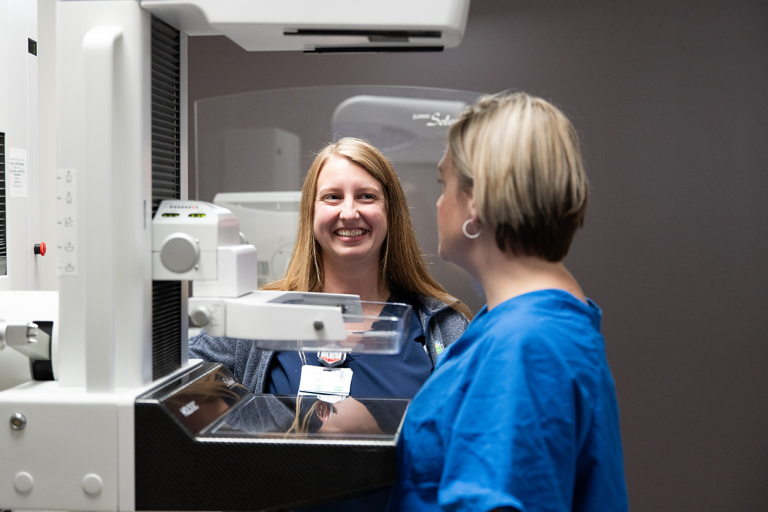The New Year is a time for fresh starts and developing habits that shape a healthier future. But, instead of making resolutions — make small, meaningful changes to improve your life over the long haul. Questions like “How often should I get a mammogram?”, “When should I start colon cancer screening?” or “What are the best cancer prevention tips for women and men?” often surface when thinking about health goals. You can take small steps. Start by prioritizing your diet and exercise goals. Doing so can lower cancer risk and lead to a healthier, longer tomorrow.
Taking care of your health through cancer screenings and prevention isn’t just about catching problems early. It’s about feeling confident and living your best life.
Why wait? Start this year with a focus on prevention. This checklist is here to guide you on your journey.
Cancer Screenings by Age and Gender
Regular cancer screenings are one of the best ways to detect cancer early. And often before symptoms appear. Use this guide to learn which screenings we recommend based on your age, gender and risk.
Breast Cancer Screening
Who should undergo screening: Women ages 40-74 or those at high risk.Frequency:
- For average risk: Mammograms every 1-2 years.
- For high-risk (e.g., BRCA mutations or strong family history): Annual breast MRI and mammogram.
Learn more about breast cancer screening.
Cervical Cancer Screening (Pap Smear)
Who should undergo screening: Women ages 21-65.Frequency: Every 3 years with a Pap smear or every 5 years if combined with HPV testing.
What it can detect: Abnormal cells in the cervix that may lead to cervical cancer.
Learn more about cervical cancer screening.
Colon Cancer Screening
Who should undergo screening: Everyone starting at age 45.Frequency: Options include colonoscopy (every 10 years), stool-based tests (annual or every 3 years) or other methods as recommended.
What it can detect: Precancerous polyps or early-stage colorectal cancer.
Learn more about colon cancer screening.
Lung Cancer Screening
Who should undergo screening: High-risk people ages 50-80 with a heavy smoking history or who currently smoke.Frequency: Annual low-dose CT scan.
What it can detect: Early-stage lung cancer in high-risk populations before symptoms develop.
Learn more about lung cancer screening.
Oral Cancer Screening
Who should undergo screening: Adults, especially those with a history of tobacco or alcohol use or symptoms like persistent mouth sores or difficulty swallowing.Frequency: During routine dental exams or as recommended by a healthcare provider.
What it can detect: Early signs of oral cancer, including lesions or abnormal growths in the mouth and throat.
Learn more about oral cancer screening.
Ovarian Cancer Screening
Who should undergo screening: Women at high risk, such as those with BRCA1/BRCA2 mutations or a strong family history.Frequency: Discuss options like transvaginal ultrasounds and CA-125 blood tests with your doctor.
What it can detect: Abnormalities in the ovaries that may indicate cancer.
Learn more about ovarian cancer screening.
Prostate Cancer Screening (PSA Test)
Who should undergo screening: Men ages 50+ or earlier for those with a family history.Frequency: Based on provider guidance after discussing risks and benefits.
What it can detect: Prostate-specific antigen (PSA) levels, which may indicate prostate cancer or other conditions.
Learn more about prostate cancer screening.
Skin Cancer Screening
Who should undergo screening: Everyone, especially people with a history of skin cancer, excessive sun exposure or concerning moles.Frequency: Annually or as recommended during routine check-ups.
What it can detect: Early signs of melanoma or other skin cancers.
Learn more about skin cancer screening.
Testicular Cancer Screening
Who should undergo screening: Young men ages 15-35, especially those with a family history or abnormal testicular changes.Frequency: Regular self-exams and discussions with a doctor during check-ups.
What it can detect: Changes or lumps in the testicles that could indicate testicular cancer.
Learn more about testicular cancer screening.
Healthy Habits to Lower Cancer Risk
- Eat a balanced diet – Include fruits, vegetables and whole grains.
- Maintain a healthy weight – Exercise regularly and choose nutritious foods.
- Avoid tobacco and alcohol – Quit smoking and limit alcohol intake.
- Protect your skin – Use sunscreen and wear protective clothing outdoors.
- Stay current on vaccinations – Consider HPV and Hepatitis B vaccines.

